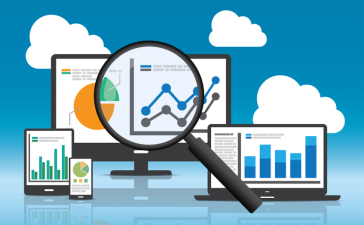The internet has become the backbone of modern society, transforming how we live, work, and communicate. From the early days of static web pages to today’s dynamic, AI-driven experiences, web technology continues to evolve at lightning speed. This evolution is not just about faster websites or fancier apps—it is about redefining industries, reshaping economies, and influencing human behavior on a global scale.
In this article, we’ll explore how web technologies have developed, their impact on business and society, and the trends that will shape the future of the digital world.
From Web 1.0 to Web 3.0: A Timeline of Transformation
The history of the web can be divided into key eras:
-
Web 1.0 (1990s – Early 2000s): The Static Web
Websites were mostly read-only, offering basic information without interactivity. Businesses used them as digital brochures rather than interactive platforms. -
Web 2.0 (Mid-2000s – 2020): The Social and Interactive Web
Platforms like Facebook, YouTube, and Twitter transformed the internet into a social and participatory space. Users could create, share, and interact with content, giving rise to the digital economy and influencer culture. -
Web 3.0 (2020 – Present): The Decentralized and Intelligent Web
Powered by blockchain, artificial intelligence (AI), and edge computing, Web 3.0 emphasizes decentralization, security, and personalization. Users gain greater control over their data, and applications leverage AI to deliver smarter, context-aware experiences.
The Business Impact of Web Technology
Businesses across industries depend on web technologies for operations, marketing, and growth. Key impacts include:
-
E-commerce Growth – Online retail has become a global powerhouse, with platforms like Amazon and Shopify enabling businesses of all sizes to reach global audiences.
-
Digital Marketing – SEO, social media, and data-driven advertising allow companies to target customers with precision.
-
Remote Work – Web-based tools such as Zoom, Slack, and Google Workspace have revolutionized the modern workplace.
-
Global Collaboration – Cloud platforms enable real-time collaboration across borders, making business more agile and efficient.
The ability to innovate with web technology often determines whether a company thrives or falls behind.

Key Technologies Driving Today’s Web
Several technologies are redefining what’s possible online:
-
Artificial Intelligence (AI) and Machine Learning
AI powers everything from personalized recommendations on Netflix to chatbots on e-commerce sites. Machine learning algorithms analyze massive datasets to deliver predictive insights and automate tasks. -
Blockchain and Decentralization
Blockchain introduces trustless transactions and decentralized applications (dApps), reducing dependence on centralized authorities. Cryptocurrencies, NFTs, and decentralized finance (DeFi) are reshaping digital ownership and business models. -
Progressive Web Apps (PWAs)
PWAs combine the speed of mobile apps with the reach of websites, allowing users to enjoy seamless, app-like experiences directly from their browsers. -
Cloud Computing
Cloud services from providers like AWS, Google Cloud, and Microsoft Azure have made scalable computing power and storage accessible to businesses worldwide. -
Edge Computing
By processing data closer to where it is generated, edge computing reduces latency—critical for technologies like autonomous vehicles and smart cities. -
Cybersecurity Innovations
With cyber threats growing, advanced encryption, zero-trust architectures, and biometric authentication are essential to securing the web.
Society and the Web: A Digital Revolution
The web’s influence extends far beyond business—it has reshaped society itself.
-
Education: Online learning platforms like Coursera and Khan Academy have democratized access to education worldwide.
-
Healthcare: Telemedicine allows patients to consult doctors remotely, improving accessibility.
-
Social Movements: Social media platforms amplify voices, enabling grassroots activism and awareness on global issues.
-
Cultural Exchange: The internet fosters cross-cultural interaction, breaking down barriers between communities.
However, challenges like misinformation, digital addiction, and data privacy concerns highlight the darker side of this transformation.
The Role of Data in Web Technology
Data is often called the “new oil” of the digital economy. Every click, search, and purchase generates valuable information that businesses and platforms use to refine services.
-
Personalization: Data enables hyper-targeted advertising and tailored experiences.
-
Innovation: Companies use analytics to develop new products and services.
-
Efficiency: Data-driven insights optimize supply chains, customer service, and marketing strategies.
But with great power comes great responsibility. Misuse of personal data has led to growing demand for stricter regulations, such as Europe’s GDPR and California’s CCPA. Future web technologies will likely focus on balancing personalization with privacy.
Web Technology and the Future of Work
Workplaces are increasingly digital, with the web enabling remote, hybrid, and gig economy models. Key developments include:
-
Remote Collaboration: Platforms like Microsoft Teams and Asana streamline project management.
-
Automation: AI-powered tools handle repetitive tasks, freeing workers for creative and strategic roles.
-
Upskilling: Online learning tools empower employees to adapt to rapidly changing industries.
-
Global Talent Pools: Businesses can hire remotely from anywhere, increasing diversity and opportunity.
The workforce of the future will be defined by adaptability, digital literacy, and the ability to thrive in tech-driven environments.
Challenges Facing Web Technology
While the web has brought countless benefits, several challenges loom:
-
Cybersecurity Threats – Data breaches, ransomware, and phishing attacks are on the rise.
-
Digital Divide – Not everyone has equal access to high-speed internet, creating gaps in opportunity.
-
Privacy Concerns – Surveillance capitalism and data misuse erode trust in digital platforms.
-
Misinformation – False information spreads rapidly online, undermining trust in institutions.
-
Overdependence on Technology – Excessive reliance can affect mental health, relationships, and social skills.
Solving these issues requires collaboration between businesses, governments, and civil society.
The Future of the Web
The next decade will bring innovations that redefine the web once again:
-
Metaverse – A blend of virtual and augmented reality, creating immersive digital worlds for work, play, and commerce.
-
5G and Beyond – Faster networks will enable real-time experiences like holographic meetings and advanced IoT.
-
Quantum Computing – Breakthroughs in processing power will revolutionize problem-solving capabilities.
-
Sustainable Tech – Energy-efficient servers and green hosting will reduce the web’s environmental footprint.
-
AI-Powered Web – Smarter algorithms will personalize experiences even further, from learning to shopping.
The common theme will be connectivity, personalization, and responsibility.

Conclusion
Web technology has come a long way from static web pages and dial-up connections. It is now a dynamic, intelligent, and integral part of human life, shaping how businesses compete, how societies interact, and how individuals live day to day.
Yet with opportunity comes responsibility. As the web evolves toward decentralization, AI, and immersive experiences, it is crucial to ensure inclusivity, privacy, and ethical use of technology. The future of the web will be defined not just by innovation but by how well we align digital progress with human values.
One thing is certain: the web will continue to be the most powerful driver of transformation in the modern era, influencing everything from global economies to the way we experience reality itself.






